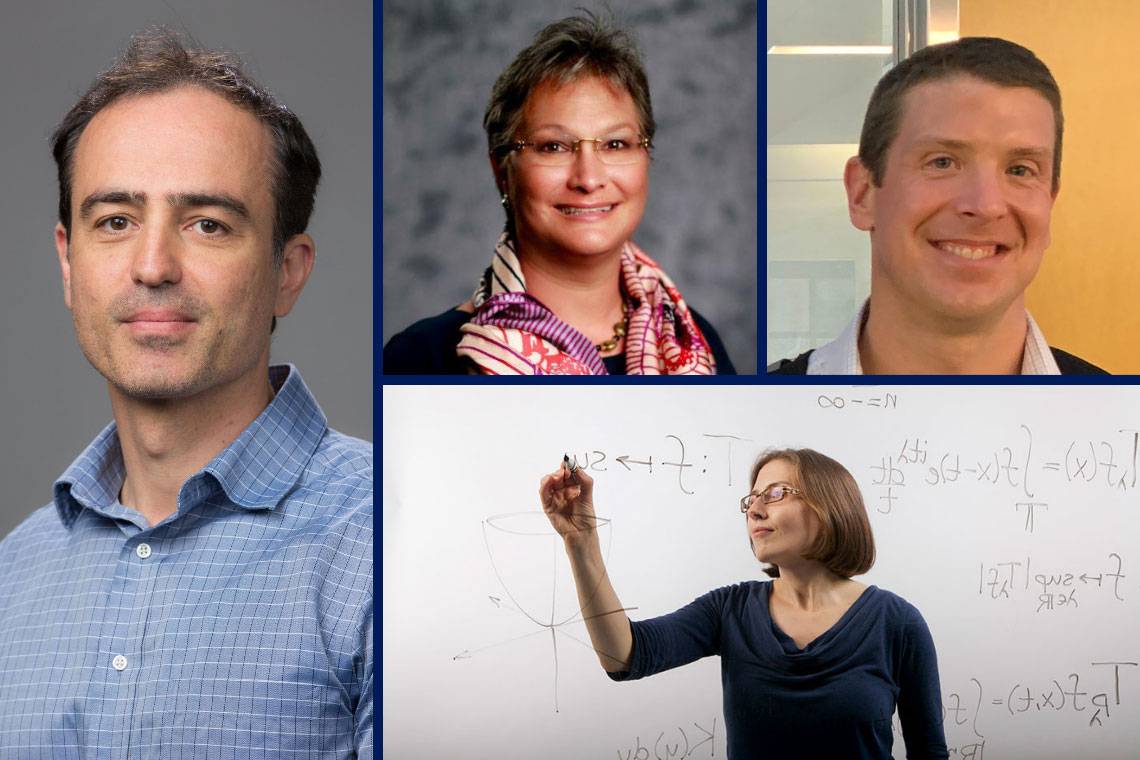
Four faculty members will receive the United States government’s highest honor recognizing their early career research accomplishments and their promise for leadership in science and technology.
The White House announced Tuesday the winners of the Presidential Early Career Award for Scientists and Engineers (PECASE), presented to outstanding scientists and engineers who are beginning their independent research careers. The award is overseen by the White House Office of Science and Technology Policy in coordination with participating federal departments and agencies.
The Duke recipients and their awarding agency are:
- Michael Boyce, School of Medicine, Department of Health and Human Services
- Nicolas Cassar, Nicholas School of the Environment, National Science Foundation
- Lillian Pierce, Trinity College of Arts & Sciences, National Science Foundation
- Tracey Yap, School of Nursing, Department of Health and Human Services
“I was thrilled to hear about the PCASE awards to these wonderful scholars,” said Provost Sally Kornbluth. “These awards are richly deserved testaments to their outstanding research. We are very fortunate to have them as members of our faculty.”
Boyce, an assistant professor of biochemistry, researches the role of protein glycosylation in mammalian cell signaling and physiology. All cells are literally covered with sugary glycans, and they play a critical role in a wide variety of cell functions. But their structural complexity has made studying them challenging, until recent advances in experimental methods paved the way for new discoveries.
Because glycans are fundamental to cell structural integrity and cell signaling, Boyce’s research looks to understand cell processes that affect human health and diseases, including cancer, neurodegeneration, diabetes and congenital disorders.
Cassar is professor of biogeochemistry in the Division of Earth & Ocean Sciences in the Nicholas School of the Environment. His research on carbon, oxygen and nitrogen cycling is producing findings that are valuable in climate forecasting. His interdisciplinary research uses field work in the open ocean and coastal waters, lab experiments, satellite observations, theoretical considerations and modeling.
Current research includes studies of marine nitrogen fixation, ocean-atmosphere gas fluxes and how marine phytoplankton transfer carbon to the deep ocean.
Pierce is the Nicholas J. and Theresa M. Leonardy Associate Professor in mathematics. Her research is in analytic number theory and harmonic analysis. Pierce’s work in number theory involves counting integral points on varieties and studying properties of class groups of number fields, for which problems she has developed new methods involving the circle method, sieves, and character sums. In harmonic analysis, she focuses on oscillatory integral operators, Radon transforms, and Carleson operators, as well as their discrete analogues, which have deep ties to number theoretic questions.
“The National Science Foundation was a critical source of funding for my graduate education and postdoctoral work, and now it is also central to funding my research as a faculty member and supporting my own students and postdocs,” Pierce said. “I am honored that the National Science Foundation nominated me for this award, and I am thrilled to see mathematics recognized by the White House.”
Yap is an associate professor in the School of Nursing, and a senior fellow in the Center for the Study of Aging and Human Development. Her scholarship goal is to improve the quality of care delivered by nursing staff, regardless of setting. Yap’s research in disease prevention and health promotion has been directed toward advancing the ability of nursing to improve health care outcomes by developing interventions that use cueing approaches such as reminder messages and behavioral alerts to increase patient movement.
As part of the five-year award, the researchers will visit Washington, D.C., and meet with administration and agency leaders to discuss their work.